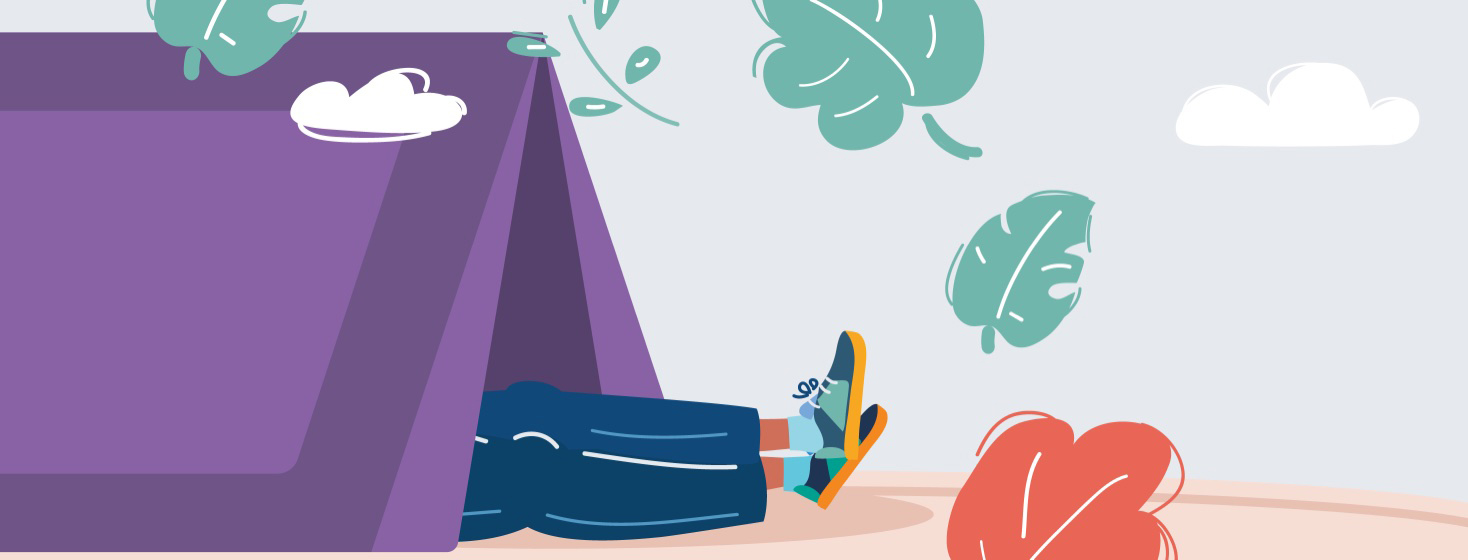A Vacation From Insomnia
I don't know about you, but after 2020 and all the travel restrictions we have faced where I live (in the UK), I'm really dying for a holiday. I have wanted to go on vacation so badly I sometimes dream-plan my next trip. Someplace hot, beachy, watery, and without the internet.
Do you sleep better when not at home?
One of the questions I ask my clients is if they sleep better when they are away from home or in a different bed in their home. For some people, this question strikes them as really odd.
Insomnia is something inside, so wouldn't it follow them wherever they went? For others, it sets off a lightbulb that blinks in neon colours: YES – I sleep better when I'm not in my own bed. Isn't that odd?!
I slept most poorly in my own bed
Thanks to CBTI (cognitive behavioral therapy for insomnia), I no longer struggle with my sleep. Still, I was in that latter camp – I slept better when NOT in my own bed.
Better in the guest bedroom bed. Better on the sofa. Better in the chair. Better in a hotel. Better at my boyfriend's place. My own very comfy and cozy bed was the place I slept the most poorly.
Obvious reasons I slept better elsewhere
If I was away and on vacation, I wasn't thinking about work all the time. Not having to face the stress of work in the morning may have helped me sleep better. Add in a healthy dose of sunshine, fresh air, and more physical activity with all the sightseeing and or hiking I could handle – and I just slept better. That much was obvious.
But what about not-so-obvious reasons?
But what about when I wasn't on vacation? Some of the reasons I slept better in other beds were not so obvious. If I slept at my boyfriend's place, it was farther to drive to work and created more early morning hassle. I would have thought I'd sleep more poorly there than at home. But I still slept better there.
Even the guest bed in my own house was more appealing. I still had to get up and go to work the next day, so it was still a bit of a mystery to me why it was MY specific bed where I experienced my worst sleep.
How conditioned arousal works
I now understand this phenomenon, called "conditioned arousal." Insomnia is a psycho-physiological problem. When we are experiencing the common pain of tossing and turning, worrying about sleep, and "struggling" to sleep, we often do this for hours upon hours – in our bed.
Our mind and body become "conditioned" or "trained" to associate our bed with all of these negative emotions and physical feelings.
What my conditioned arousal looked like
So, yes, I slept better on holiday because I was relaxed. But I was also not in a bed that I had come to mentally and physically associate with the "struggle" to sleep. The concept also explains why I could sleep better just about anywhere else.
Instead of a "strange" or less used bed making it harder to sleep, my sleep improved because I didn't subconsciously associate those beds with not sleeping in the way I had come to do with my own bed. I'd get into those beds with less conditioned awakeness – and then return home to my own bed where my mental and physical body immediately said, "Oh, here's where we struggle to sleep, let's get started!" and I'd have a terrible night of sleep.
Do you struggle too?
So how do we sort through this confusion and get back to sleeping well in our beds? Carin wrote this excellent article about how to undo negative associations with the bedroom and the bed, and I'd strongly suggest you check it out.
Reading these articles, do you see yourself in them? Have you ever slept better someplace else than in your own bed?

Join the conversation